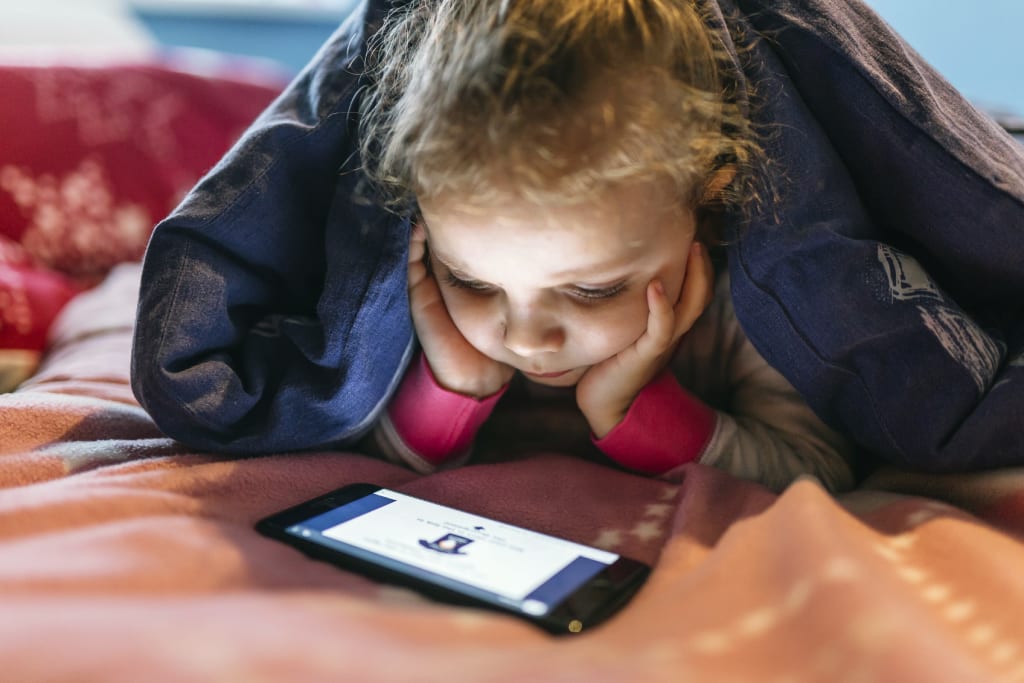Content warning
This story may contain sensitive material or discuss topics that some readers may find distressing. Reader discretion is advised. The views and opinions expressed in this story are those of the author and do not necessarily reflect the official policy or position of Vocal.

Kids tend to have a natural affinity for roleplay on social media platforms due to the opportunities they provide for creative expression. The impact of this type of play can be positive, such as helping them build empathy and develop important communication skills, or negative if it encourages inappropriate attitudes towards others online.
Recently, a video of a father reaction to her small girl role playing with strangers on social media has gone viral. The video sparked widespread interest on various social media platforms and evoked different emotions from viewers. People expressed their concerns when a child was harshly reprimanded and scolded in front of the camera which was then posted on social media. This kind of punishment is unacceptable and can have a lasting impact on the child's life.
Upon further investigation, it was determined that the roleplaying game that the girl was partaking in was not suitable for his age and involved people she had never met. What sparks a child's interest in playing the same game over and over? It could be mere curiosity or there might be something more, maybe it is related to their bond with you and other family members.
One of the main reasons kids engage in roleplay with strangers on social media is to gain recognition and experience something they might not have access to in real life. This could include kind communication, warmth, and appreciation that they may otherwise be denied.
Additionally, when a child is comfortable with a game, they might keep on playing it. This could lead to potential addiction or continuously wanting to access the game through social media. They enjoy being in the roleplay as it provides them with pleasure and fulfillment. In his brain, dopamine will be released which brings a sense of comfort to her. She may feel relaxed & at ease momentarily, however eventually the calmness dissipates and she has no other way to regain that calming sensation except repeating the action over and over again, this creates a consistent pattern of behavior.
Participating in roleplaying games on the internet can pose a significant risk for children, as they might come into contact with unknown people. A lack of awareness about this condition can result in situations that involve sexual assault or verbal abuse. Furthermore, the disturbing circumstances from these experiences can be embedded deep within a child's psyche, thus leading to potential psychological trauma in the future.

As if that weren't enough, roleplay games can also pose a challenge for young players trying to distinguish between virtual reality and the imagined worlds inside the game. When engaged in roleplaying activities online, kids may have difficulty differentiating between fiction and reality. Despite the progress of nerve cells, it is still not developed enough to grasp this situation and further growth could be hindered.
This child has Borderline Personality Disorder, does not have a good self-image and is very emotionally unstable. There are people who are narcissists and always want to be the biggest, best, number one. Next it's theatrical and always attention-grabbing. Some people are paranoid, always suspicious, and always fearful.
It is vital for parents to provide aid and support to their kids so that they do not seek solace in unhealthy avenues. As parents, we must be aware of what our kid requires, not just physical needs, but also emotional well-being. It is important for us to understand their emotions and how to take care of them. Having a close bond, securing attachment with one's parents, receiving appreciation, and being nurtured through good parenting are all essential components of healthy relationships within the family.
About the Creator
Nasi Uduk
Now or never






Comments
There are no comments for this story
Be the first to respond and start the conversation.